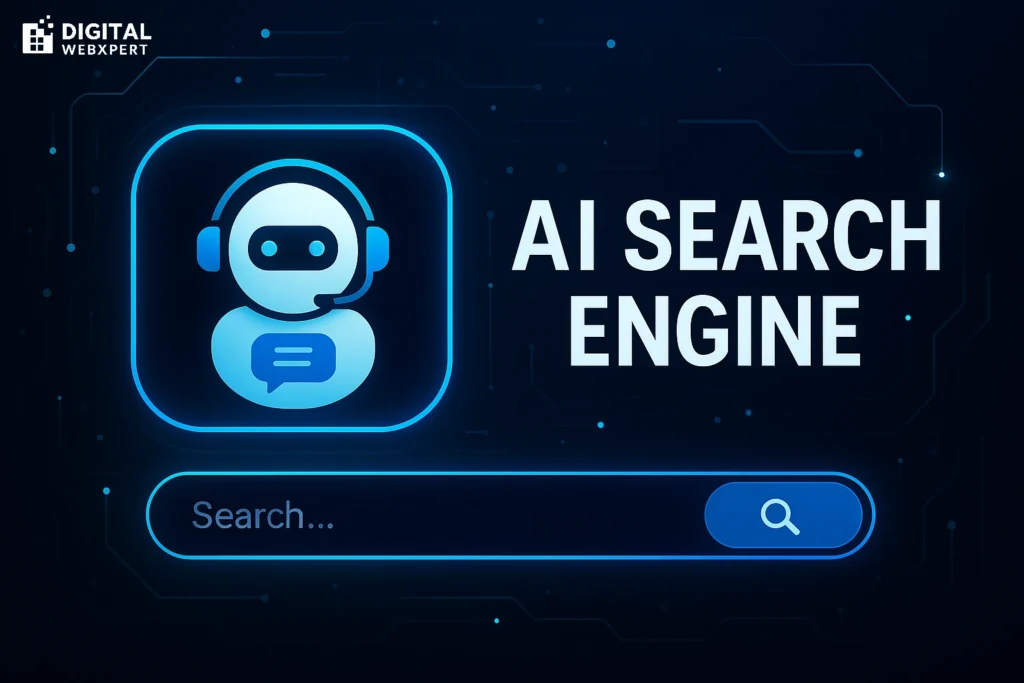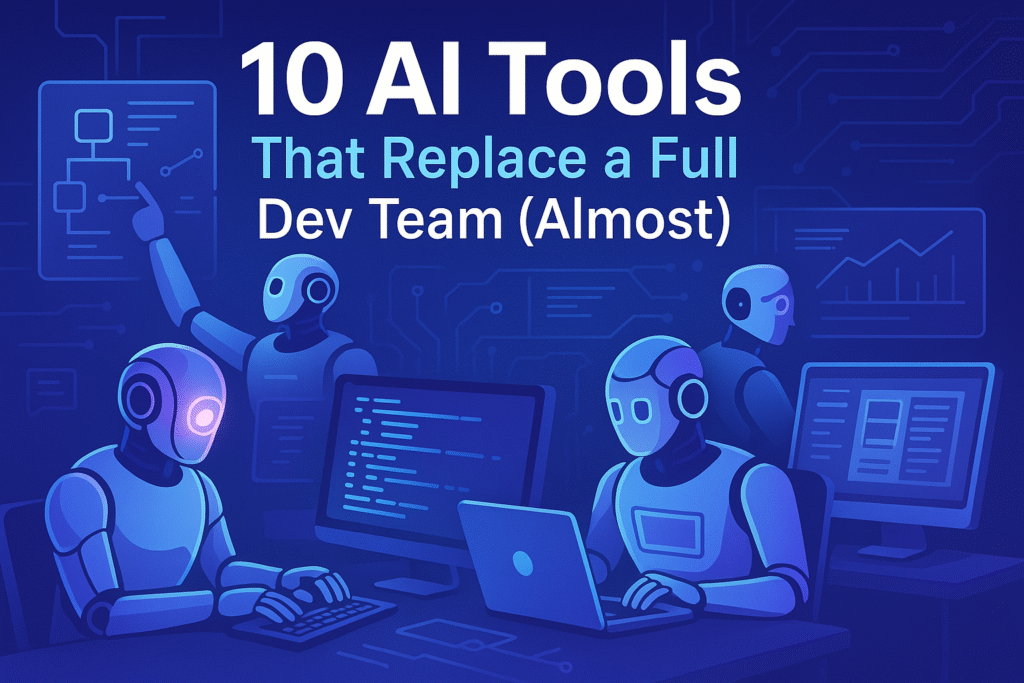Introduction: The Rise of AI Search Engines
Search has always been the backbone of the internet. From the early days of simple keyword queries to today’s intelligent systems, search engines shape how users find, consume, and trust information. Now, a new era is here—AI search engines. Unlike traditional search tools that simply index pages, AI search engines understand context, generate answers, and deliver conversational insights.
For businesses involved in web design, app development, and digital marketing, this shift is more than just a technical change—it’s a revolution in visibility, traffic, and customer engagement. Let’s explore what AI search engines are, how they work, and why they matter for your business growth.
What are AI Search Engines?
AI search engines are advanced search platforms powered by artificial intelligence and machine learning algorithms. Unlike traditional engines that rely on keyword matching, AI search engines:
Interpret natural language queries instead of exact keywords.
Provide direct answers and summaries instead of just links.
Learn from user behavior to improve future results.
Offer multimodal search (text, voice, and image).
Examples include Google’s Search Generative Experience (SGE), Microsoft Bing AI with ChatGPT, and Perplexity AI. These platforms combine retrieval-based systems (finding relevant documents) with generative AI (summarizing and explaining answers).
Why Do AI Search Engines Matter? (9 Reasons)
1. Smarter Answers, Less Guesswork
Traditional search results often forced users to click multiple links to find answers. AI search engines summarize the best content into direct responses, saving users time. For businesses, this means your content needs to be optimized for clarity and authority, so it becomes the trusted source AI engines summarize.
2. Shift from SEO to AEO (Answer Engine Optimization)
In AI-driven search, it’s no longer enough to rank on the first page of Google. Instead, businesses must optimize for Answer Engine Optimization (AEO)—ensuring their content is clear, structured, and trustworthy enough to be cited in AI-generated responses.
3. Impact on Web Design & UX
Websites must now be designed for scannability and structured data. Proper headings, schema markup, FAQs, and fast performance improve chances of being featured in AI summaries. At Digital WebXpert, we specialize in building AI-ready websites that balance design beauty with technical SEO strength.
4. Revolution in App Development
AI search engines aren’t limited to the web—they’re being integrated into apps. From voice assistants to in-app conversational search, modern apps will increasingly use AI search to enhance UX. Businesses building apps must adopt APIs and AI-driven search modules to stay competitive.
5. New Opportunities in Digital Marketing
Marketing teams must rethink strategies. Since AI search engines prioritize authoritative and earned media content, businesses that invest in content marketing, PR, and knowledge building will rise above competitors relying solely on keyword stuffing.
6. Conversational & Personalized Search
AI search engines provide more personalized results based on context and previous queries. For eCommerce sellers, this means products can surface in natural conversational flows—for example, when a customer asks, “What’s the best affordable mobile app development service in India?”
7. Multi-Modal Search: Beyond Text
Users can now search using images, videos, or voice queries. Imagine uploading a screenshot of a web design and asking, “Find similar layouts.” This creates opportunities for designers, developers, and marketers to optimize across multiple media types.
8. Challenges: Accuracy, Bias & Visibility
AI search engines sometimes “hallucinate” or generate incorrect information. They may also favor larger, established domains. For small businesses, this creates a challenge: how to earn credibility and avoid being drowned out. Strategic optimization and authority-building content are essential.
9. Future-Proofing Business Growth
Ignoring AI search engines is a risk. Businesses that adapt will gain visibility, leads, and conversions. Those who don’t may see a decline in organic traffic. Adapting early positions your brand as future-ready.
How to Optimize for AI Search Engines
To succeed in the age of AI search engines, businesses should focus on:
Creating clear, structured content: Use headings, lists, and FAQs.
Building authority: Earn backlinks, media mentions, and trust signals.
Using conversational keywords: Optimize for natural language queries.
Leveraging schema markup: Add structured data for products, services, and FAQs.
Designing fast, mobile-friendly websites: Speed and UX are ranking factors.
Exploring AI-driven apps: Integrate AI search features into apps for better UX.
At Digital WebXpert, we combine AI-powered web design, app development, and digital marketing to help businesses adapt seamlessly to this new search era.
Conclusion: Why AI Search Engines Can’t Be Ignored
AI search engines are not just another trend—they represent a fundamental shift in how people access information online. For businesses, the question isn’t whether to adapt, but how fast you can align your web design, app development, and digital marketing strategies to this new reality.
By embracing AI search engines, you position your brand for visibility, trust, and growth in a digital landscape where speed, intelligence, and authority matter more than ever.
If you’re ready to future-proof your business, Digital WebXpert is here to help.



